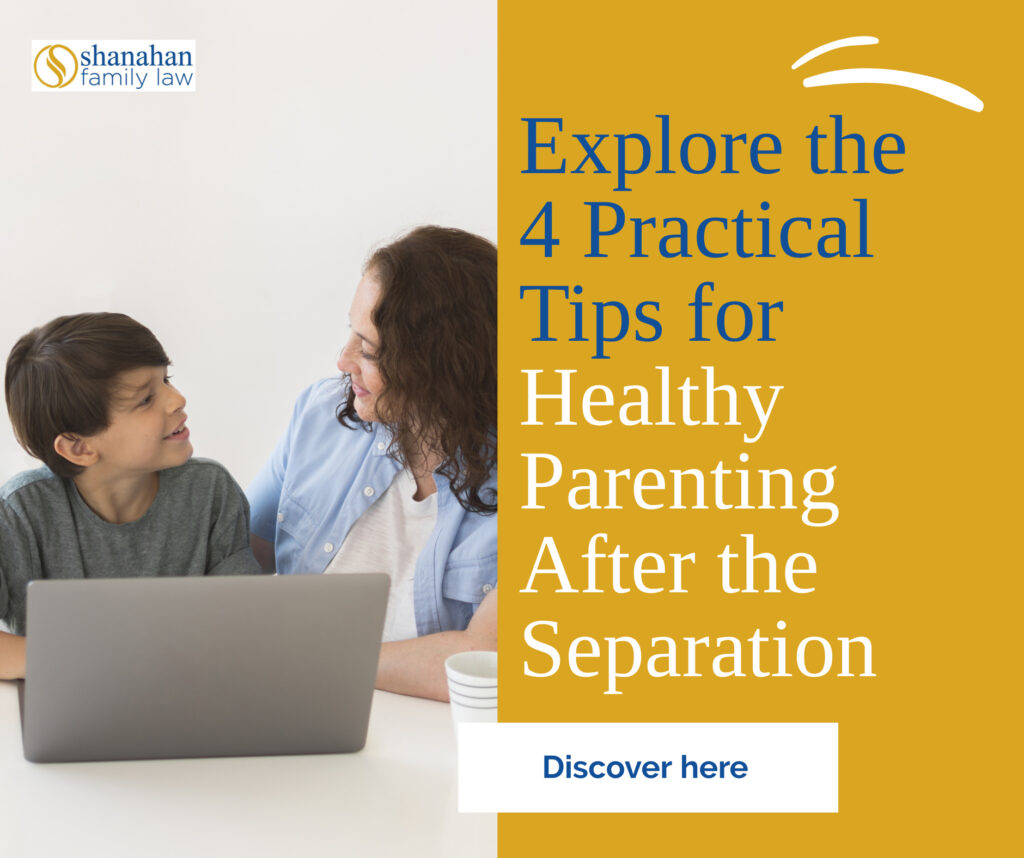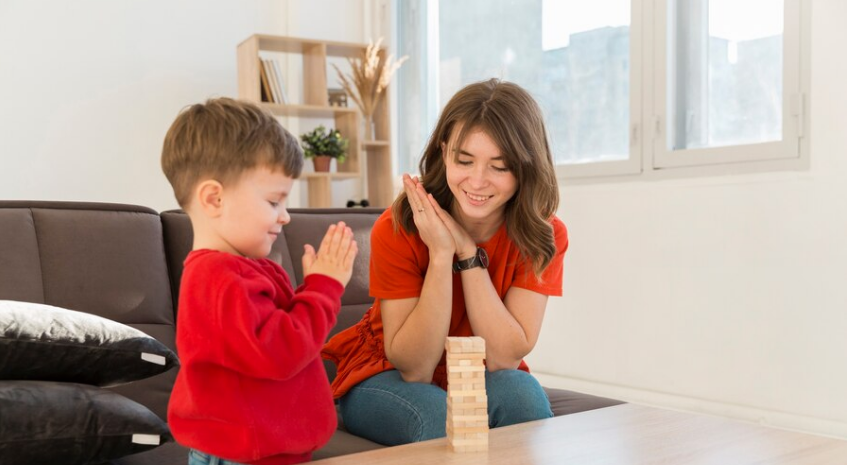A separation or family division can be complex and becomes more intricate when children are involved. When your relationship with your partner has broken down, there is an opportunity for you to separate and be friends, especially if you have a child. Embracing healthy parenting strategies can make a significant difference. If you live separately, collaborative co-parenting can be a positive experience for you and your ex as you spend quality individual time with your children.
We have seen many healthy relationships develop once couples are separated, and both are committed to doing the best they can for their children. We have also seen children happier when their parents get along despite no longer living together.
Key takeaways 
- Separation can allow parents to develop a healthy co-parenting relationship, benefiting both the children and the parents.
- Children’s wellbeing should always be the top priority, and parents should shield them from disagreements or conflicts.
- Children can thrive post-separation if they are not exposed to parental conflict and maintain loving relationships with both parents.
- The divorce process is separate from settling children’s matters and property division; parents don’t have to wait for the divorce to finalize these agreements.
- Parents can establish effective parenting techniques or consent orders to outline shared responsibilities and decisions affecting the children.
- If parents cannot agree on a plan, mediation or court intervention may be necessary. The court always prioritizes the best interests of the children.
- The court can decide on various aspects of child care, including living arrangements, decision-making responsibilities, and potential relocation.
Effective Healthy Parenting After Separation
During the divorce process, you will encounter many legal family law matters, including children’s matters and property settlement. As parents and divorce lawyers, we would like to share some insights into making your co-parenting positive for everyone involved.
1. Remember what is important
Your children’s wellbeing should be the top priority for you and your ex-spouse. There could be much disagreement. But, make the commitment upfront to do everything you can to shield your children from disagreements or arguments and make it as positive as possible for them. A negative approach can impact your children for the rest of their lives. We recommend that you and your ex-partner focus on being great parents, as it will help mitigate some of the hurt you may be feeling towards each other.
2. Avoiding conflict after the divorce
Children can thrive once their parents are separated as long as they have a mature relationship without constant bickering and arguing. Studies show that most children suffer no lasting negative impacts on their grades, life satisfaction, or social skills when their parents are amicably divorced. Loving relationships with their parents without being exposed to conflict is most important to a child’s life.
3. The divorce process
If you are currently considering separating from your partner, consider the following:
- Although you must separate from your partner at least 12 months before filing for a divorce, you don’t have to wait to finalise an agreement for parenting matters or to divide your assets;
- The divorce generally finalises three months after the application;
- Deciding your children’s parenting practices and your property settlement is separate from the divorce process;
- When one partner makes a sole divorce application with children under 18, you must attend a divorce hearing to advise the court that adequate living arrangements for the children exist.
4. Settling children’s matters during the divorce process
Establishing an agreement with your former partner is an excellent way to handle parenting responsibilities after separation. In an agreement with equal shared parental responsibility, both parents share in the significant long-term decisions affecting the children, like which school the children will attend.
Your amicable agreement can be a parenting plan or consent order outlining the agreement. If you and your ex-partner can’t agree, you can attend a mediation conference. If you still can’t agree, you must apply to obtain parenting orders from the court.
The court’s main priority will always be to consider what is in the best interests of the children, such as:
- The need to protect children from violence;
- The right of children to know and be cared for by both parents; and
- The children’s right to spend time and communicate with both parents.
The court can make several decisions directly related to the care of children, including:
- Who children will primarily live with;
- The time children will spend with each parent;
- Whether one or both parents are responsible for critical decision-making; and
- Whether or not relocating the children is appropriate.

If we can assist you, book a free discovery call with a Shanahan Family Law expert who will listen and guide you through your unique situation. Our team is also ready to listen attentively to your circumstances and provide insightful guidance, including advice on obtaining a recovery order if needed.
The above information is intended to be general advice only and is not a substitute for personalised advice. Because it does not consider your individual circumstances, it is not intended to be relied upon, and any loss or damage arising from any such reliance is disclaimed. Any financial or legal decisions should only occur after you have received tailored advice from a legal or financial professional.

